Apple is typically loath to reveal processor parts numbers in releasing new Mac hardware, and the company followed that trend when it unveiled the 2018 MacBook Air on Tuesday. Cross-referencing part specifications with Intel's ARK database, however, suggests the thin-and-light is powered by a just-announced Intel processor from the same family rumored to show up in the MacBook line.
On its tech specs webpage, Apple says the new MacBook Air is powered by a 1.6GHz dual-core Intel Core i5 processor with Turbo Boost up to 3.6GHz. The chip further boasts 4MB of L3 cache, supports up to 16GB of 2133MHz LPDDR3 memory and includes Intel's UHD Graphics 617.
According to Intel's website, there is one chip that matches those chip specifications: the Core i5-8210Y. Released in the third quarter of 2018 a part of the Amber Lake family, the 8th generation Core i5 is an efficient 7 Watt chip built on Intel's 14-nanometer process.
Interestingly, Intel apparently posted information about the chip to ARK following Apple's media event in New York.
In its coverage of today's Apple announcements, AnandTech earlier today noted the single Intel Core i5 chip being offered with the new MacBook Air did not match any component in the chipmaker's ARK database. The publication opined that Apple integrated unannounced 5W Amber Lake silicon in its latest thin-and-light, a major shift from the 15W U-series chips used in previous MacBook Air models.
As noted by AnandTech, Apple is trading efficiency for performance potential by opting for Amber Lake. Still, the newly designed CPU and integrated GPU pairing is a step up from the Broadwell architecture currently used by the non-Retina display MacBook Air.
On its website, Apple claims the new MacBook Air with Retina display's 50.3-watt-hour battery pack is good for up to 12 hours while browsing the web over Wi-Fi, 13 hours while watching iTunes movies or 30 days on standby.
Earlier this year, details of Intel's Amber Lake chips leaked, revealing potential CPU candidates for Apple's MacBook lineup. The entry-level Macs rely on 5W Y-series chips, making Amber Lake a suitable replacement if and when the laptop line is refreshed.
 Mikey Campbell
Mikey Campbell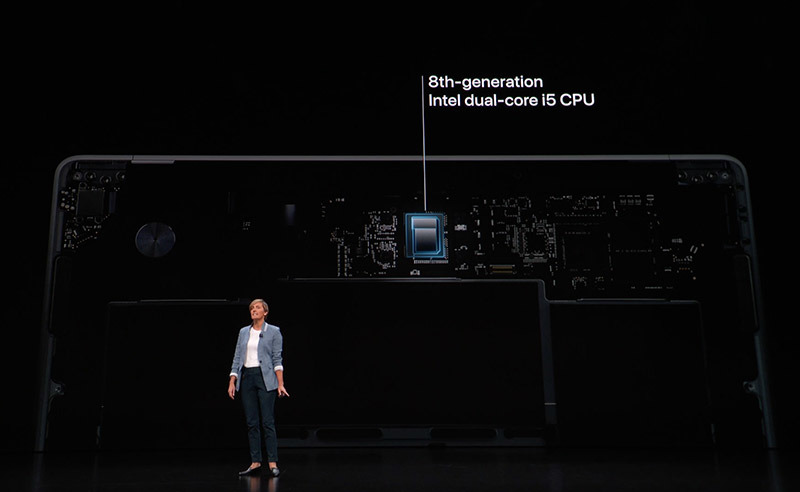






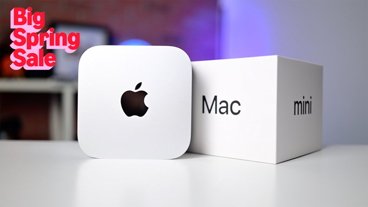
-m.jpg)





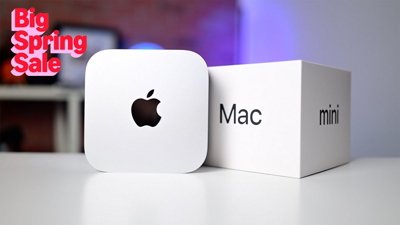
 Christine McKee
Christine McKee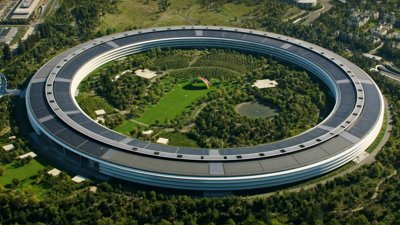
 Wesley Hilliard
Wesley Hilliard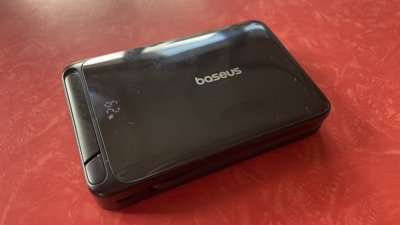
 Thomas Sibilly
Thomas Sibilly
 Marko Zivkovic
Marko Zivkovic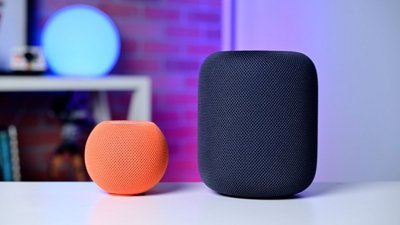
 Andrew O'Hara
Andrew O'Hara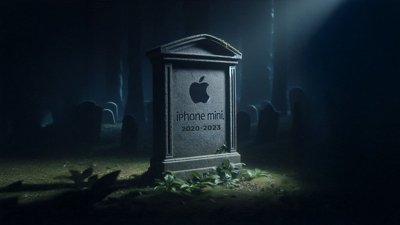
 Amber Neely
Amber Neely
 William Gallagher
William Gallagher


-xl-m.jpg)





23 Comments
Jason Snell thinks this wasn’t the plan for the Mac laptop lineup and the reason we have a new Air is because people were still buying the old one. That doesn’t make sense to me. Most likely the reasons people were still buying it were price, keyboard, ports and MagSafe. Yet the new Air is more expensive, uses the new butterfly keyboard, doesn’t have USB-A, SD Card or Mag Safe. Outside of the retina display how is this satisfying those who were buying the Air over the rMB or rMBP?
The only reason I might agree with his theory is this:
I tried to find benchmark(passmark) of Core i5-8210Y supposedly used in new Macbook Air. Just want to compare with 2018 13" Macbook Pro. Thought, this new Macbook Air will be close in performance to 2018 13" Macbook Pro because Apple didn't update the 2018 function keys Macbook Pro. I want better performance Macbook Pro but hate to pay that stupid useless touchbar
Thought so, afaik there's no U series 8th gen parts with two cores, so they had to have stepped down.
It keeps a fan though, so it should have much better sustained performance than the 12" Macbook...I wonder if the 12" is just going to die now, because the two are too close in price while this beats it on function now.
Since they have already updated the 12” MacBook color selection to match the new MacBook Air colors it looks like there is no immediate plan to discontinue it. The rose gold 12” might have been a selling point just on style alone for customers who liked the small size and could deal with the limitations.
As it is, there is a confusing bit of overlap in the models. I don’t know what to make of it. I was ready to sell off a few MacBook Pros from 2009 and 2011 and go with something more up to date. I think I just be on the lookout for a nice deal on something maybe 2014-2015. Fact is the older ones are still doing me well.
Well that’s interesting because all of the ultrabooks today are using Core-U series. Maybe they’re thinking if people want an U-series chip then go with the 13” MacBook Pro (which are bit faster than average ultrabook because they’re using 28W chips). Core m are good enough for everyday tasks and much more power efficient. Not a fan of this but fine.
I do hope when they’re switching to ARM, they’re using AX processors for it. 12” MacBook will be A-series if it still exists in 2020.